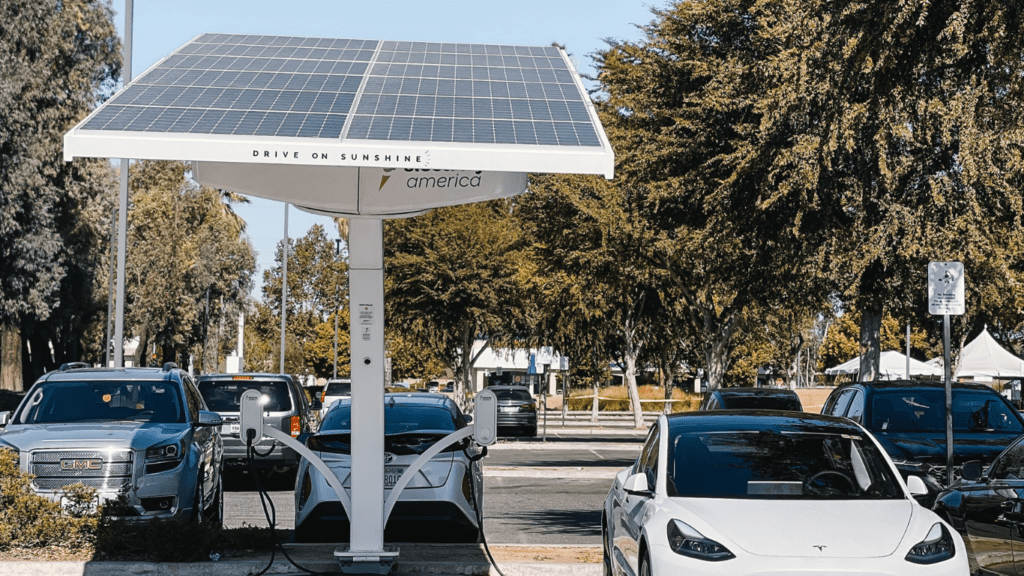Understanding Green Business Trends
Green business trends are driving significant changes across industries. Companies are increasingly focusing on sustainability to meet consumer demands and regulatory requirements.
Definition and Importance
Green business trends refer to practices aimed at promoting environmental sustainability. These include using renewable energy, reducing waste, and sourcing eco-friendly materials.
Adopting these trends isn’t just about corporate responsibility; it’s about long-term profitability. Sustainable companies attract eco-conscious consumers and investors, reduce operational costs, and comply with regulations. For example, Patagonia’s commitment to environmental sustainability has bolstered its brand image and customer loyalty.
Evolution of Green Businesses
Green businesses have evolved significantly over the past decades. Initially, efforts focused on basic recycling and energy-saving measures. Now, the scope has widened to include comprehensive sustainability strategies.
Companies like Tesla and IKEA lead the way with innovations in electric vehicles and renewable energy initiatives. Today’s green businesses prioritize not only eco-friendly products but also sustainable supply chains and corporate governance.
This evolution reflects a broader recognition of the importance of environmental stewardship to meet consumer expectations and achieve competitive advantage.
Key Trends in Green Business for the Coming Years
Green business practices are evolving rapidly as companies seek to meet both consumer demands and regulatory requirements. The following key trends showcase how enterprises plan to stay ahead in sustainability.
Sustainability in Supply Chains
Companies now recognize that sustainable supply chains reduce costs and appeal to eco-conscious consumers. They source raw materials ethically, ensuring minimal environmental impact.
For example, Unilever ensures all its palm oil comes from sustainable sources. Another strategy includes adopting circular economy principles, where products are designed to be reused and recycled, significantly cutting waste and conserving resources.
Growth of Renewable Energy Solutions
Investing in renewable energy solutions reduces carbon footprints and often lowers operational costs. By 2030, experts predict that renewables will generate 50% of the world’s electricity.
Businesses like Google have already achieved 100% renewable energy usage for their operations. Additionally, corporates are investing in on-site renewable energy sources like solar panels and wind turbines, which provide reliable and cost-effective power.
Integration of AI for Energy Efficiency
AI technology optimizes energy use, reducing waste and saving costs. Companies implement AI-driven systems to monitor and control energy consumption in real-time.
For example, IBM’s AI solutions help data centers achieve significant energy savings by predicting demand and adjusting cooling systems accordingly.
AI also assists in predictive maintenance, where machines are serviced before failures occur, ensuring efficiency and longevity.
These green business trends are not only shaping the next few years but also setting the foundation for a sustainable future in the corporate world.
Impact on Key Industries
Manufacturing Industry Transformations

In the manufacturing industry, businesses include renewable energy and sustainable materials in their processes to reduce carbon emissions.
Companies like Tesla adopt solar power and energy storage systems at production facilities. Some are investing in closed-loop systems to recycle materials, showcasing a commitment to the circular economy.
Automation enhances energy efficiency, as evidenced by Siemens’ digital twin technology that optimizes production lines for minimal waste.
Changes in the Service Sector
The service sector sees a shift towards sustainable practices, particularly in hospitality and finance. Hotels adopt eco-friendly practices like using biodegradable products and reducing energy consumption through smart thermostats. Marriott International, for example, implements waste reduction initiatives.
Financial institutions, such as Bank of America, invest in green bonds and sustainable projects. Additionally, tech companies integrate AI to enhance energy efficiency in data centers, reducing operational costs and environmental impact.
Challenges Facing Green Business Adoption
The shift towards green business presents several challenges for companies aiming to adopt sustainable practices. These hurdles can slow down or complicate their journey.
Regulatory Hurdles
Navigating complex and varying regulations across regions can pose significant challenges. Compliance with environmental regulations often requires companies to change operations and strategies.
For instance, the European Union’s Green Deal mandates stringent carbon reduction targets, while the US has evolving guidelines under the Environmental Protection Agency (EPA).
Economic Implications
- Green initiatives often involve high upfront costs which can strain resources, particularly for small to mid-sized businesses.
- Investments in renewable energy infrastructure or sustainable materials can require substantial capital.
- Short-term costs may deter companies despite long-term savings potential.
- Economic downturns can also impact available capital for green investments, creating additional barriers for planning and execution.
Opportunities for Entrepreneurs
Sustainable practices are creating numerous opportunities for entrepreneurs. The market’s shift towards eco-friendly products and services is opening new avenues for innovation and growth.
Innovations in Green Technology
Green technology innovations provide fertile ground for new businesses. Solar power, wind energy, and other renewable sources are seeing significant advancements. Startups can develop cutting-edge solutions like energy-efficient appliances or smart grid technologies.
Additionally, entrepreneurs can create software that optimizes energy consumption in commercial and residential settings. As electric vehicles grow in popularity, there’s room for businesses focusing on EV infrastructure, such as charging stations.
Market Demand for Eco-Friendly Products
Consumer demand for eco-friendly products is rising. People prefer sustainable alternatives such as:
- biodegradable packaging
- organic produce
- energy-efficient home products
Entrepreneurs can capitalize on this by developing green consumer goods. For instance, launching a brand that offers reusable household items or environmentally friendly clothing can attract a significant customer base.
Niche markets, like vegan products or zero-waste beauty items, also present robust opportunities for new ventures.
 Edward Kindler - Eco-Tourism Advocate & Contributor at Green Commerce Haven
Edward Kindler is a passionate eco-tourism advocate and a dedicated contributor to Green Commerce Haven. With a background in sustainable travel and a deep love for nature, Edward specializes in sharing insights on eco-tourism tips and environmentally responsible travel practices. His expertise helps guide readers in exploring the world while minimizing their environmental impact. Edward’s contributions to Green Commerce Haven reflect his commitment to promoting travel experiences that honor and protect the natural world.
Edward Kindler - Eco-Tourism Advocate & Contributor at Green Commerce Haven
Edward Kindler is a passionate eco-tourism advocate and a dedicated contributor to Green Commerce Haven. With a background in sustainable travel and a deep love for nature, Edward specializes in sharing insights on eco-tourism tips and environmentally responsible travel practices. His expertise helps guide readers in exploring the world while minimizing their environmental impact. Edward’s contributions to Green Commerce Haven reflect his commitment to promoting travel experiences that honor and protect the natural world.
